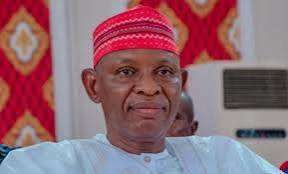
Iliyasu Abdullahi Bah
The Kano State Investment Promotion Agency (Kan-Invest) has strongly disputed a recent report by the National Bureau of Statistics (NBS), which claimed that the state attracted only $120,000 in Foreign Direct Investment (FDI) in the first quarter of 2025.
According to the NBS report, only seven states, primarily Lagos and Abuja, recorded significant foreign capital inflows, while 30 others, including Kano, were listed with negligible figures.
However, Kan-Invest has dismissed these claims as inaccurate, insisting that the state secured over $22 million in FDI within the same period, primarily in renewable energy investments, including Compressed Natural Gas (CNG) and Liquefied Natural Gas (LNG) projects.
In a statement issued by the agency spokesperson, Aminu Sambauna, the agency expressed shock over the NBS report, describing it as misleading and lacking proper verification.
“It is surprising to see an agency like NBS, which is relied upon by the media for accurate and verifiable data, release wrong information without even contacting states for details,” Sambauna stated.
He further clarified that the $22 million recorded in Q1 2025 was solely from the renewable energy sector, with additional investment proposals still pending approval, which could significantly exceed the current figures.
The agency criticized the NBS for failing to engage state authorities before publishing its report, emphasizing that Kano’s actual FDI performance was grossly underreported.
“The report claimed that Kano State attracted a mere $120,000 in FDI, which is far from the actual figure, as per our capital importation records. The state was not contacted during this computation,” Sambauna explained.
He stressed that the correction was necessary to reflect Kano’s true investment potential, particularly given the state government’s ongoing reforms to improve the ease of doing business and attract global investors.
In a bold declaration, Kan-Invest announced that it would soon release its Multi-Sectoral Investment Strategic Plan, outlining a $10 billion investment target over the next five years.
The conflicting figures raise serious concerns about the reliability of Nigeria’s FDI reporting mechanisms. Experts say that, if Kan-Invest’s claims are validated, it would suggest that Kano is emerging as a major investment hub in Northern Nigeria, particularly in clean energy initiatives.
However, the NBS’s failure to consult state agencies before publishing its report could undermine investor confidence in Nigeria’s data transparency. Moving forward, there is a need for stronger collaboration between federal statistical bodies and state investment agencies to ensure accurate and verifiable economic reporting.
As the debate unfolds, stakeholders will be watching to see if the NBS issues a correction or clarification.
